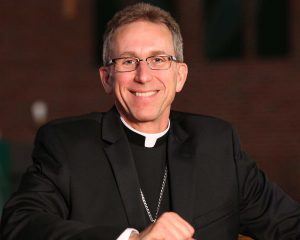
Q. There seems to be so much controversy about the Church’s teaching about gender, sexual morality and so on. How can I explain these teachings when so many people seem to take issue with it?
As noted in the first part of our response to this question last month, the Church’s teachings on these topics are both highly controversial and incredibly significant, as they all relate to one single issue: what does it mean to be human? What is the human being, and what is the human being for?
This month, we’ll look at two points, starting with this: the Church’s teaching isn’t a matter of opinion, but of truth, and as such, it is transformative.
Because the Church’s teaching on the human person and human sexuality is Jesus’ teaching, and because he is God himself, this teaching indeed reveals to us the truth about who we are and who we are called to be. That is, this teaching is true, and as such, understanding it and living by it enables and empowers us to live the good life, the abundant life, life to the full.
This is a point worth making because it is increasingly counterintuitive to many Catholics, let alone other Americans. Many of us see the Church’s teaching as heavy and burdensome, but those appearances are deceiving, as is attested to by those who have pushed beyond those appearances and have sought to understand and live that teaching.
This is also a point worth making because many people see the Church’s teaching as not only heavy and burdensome but worse, as downright mean and bigoted. But if the Church’s teaching is in fact true, then neither of these can be the case.
This teaching isn’t something offensive or prejudicial about which we should be embarrassed: it is the truth about who and what we are, and therefore, we should present it lovingly, with the confidence that it can be understood by others and thereby transform their lives just as it has transformed our own.
The second point addresses the relationship between our souls and our bodies.
To begin to explore this relationship, I would like you to consider which of the following statements most accurately expresses the Church’s teaching—and therefore the truth—of the human person. Statement #1: “I have a body.” Statement #2: “I am a body.”
In everyday language, we tend to state the former: my body is one thing, but “I”—my center, my spirit, who I am as a person—am something else. And in the spiritual life, we tend to state the former because it is the soul that will last beyond the grave; it is the soul that is immortal, not the body.
And yet, it is the second statement that describes the truth about the human person in a greater way: I do not merely have a body. My body is a constitutive, essential aspect of my identity. The Church teaches that the human person is neither the soul nor the body, but rather is the union of body and soul together. So, I am an ensouled body, I am an embodied soul.
The implications of this truth about the human person are far greater than most people initially realize. We often joke about wishing we were born in another time, but that’s impossible: I couldn’t have lived 200 years ago because I am this body, which came from the bodies of my parents, and they didn’t live two centuries ago. (Hence, the impossibility of reincarnation.) The human person, Chris Burgwald, is a unique union of a unique body and a unique soul. I would not exist apart from either this body or this soul.
More seriously and relevantly, my identity as a human being is as a man, because my body is a constitutive element of who I am. The transgender movement and the ideas that underlie it hinge on a fundamental misunderstanding of the human person and of the place of the body in the person, because it separates the person—the “I”—from the body, making the body not a part of who I am but rather as something I merely “have” or “wear.” But in fact, bodily identity, including my biological sex, is an essential dimension of my human identity: because I am this ensouled body, I am a man, not a woman, whatever emotional conflict I might feel.
Again, the implications of the difference between having and being a body are vast. These are just two examples.
Next month, we’ll conclude this series by considering the purpose of human sexuality.


